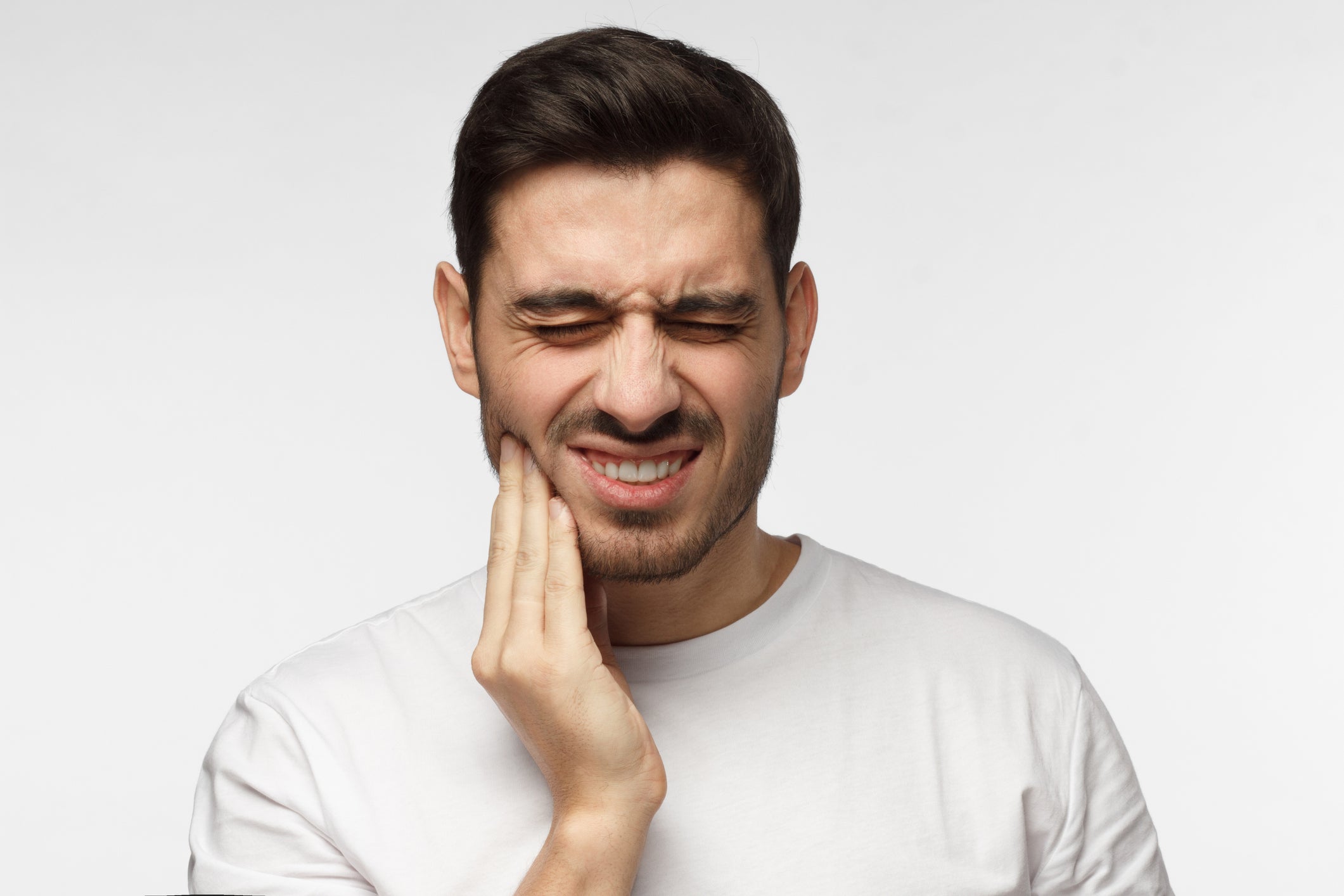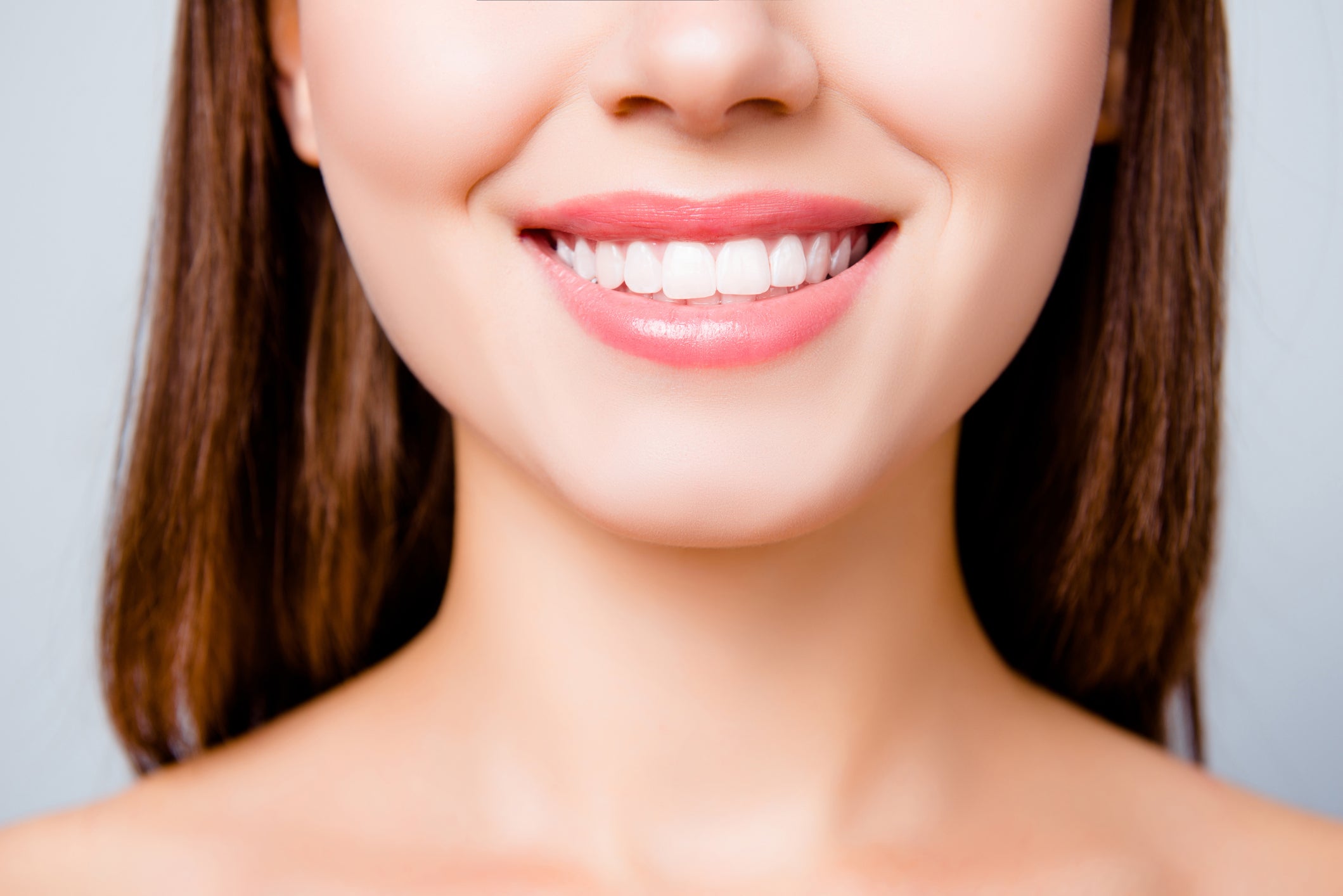-
The Ultimate Guide to Tackling Tooth Sensitivity
Understanding and Managing Tooth Sensitivity
Tooth sensitivity is a common dental issue that affects many people worldwide. It’s defined by a sharp pain or discomfort in the teeth when exposed to certain stimuli, including cold, hot, sweet, or acidic foods and drinks. The sensation can be temporary or chronic, but regardless of its duration, it significantly impacts one’s quality of life. This guide aims to provide comprehensive insights into the causes of tooth sensitivity and offer practical solutions to manage and reduce it effectively. Continue reading “The Ultimate Guide to Tackling Tooth Sensitivity”
-
The Best and Worst Foods to Eat for your Teeth During the 2023 Holidays

Enjoying Christmas dinner.
The Holidays are upon us, and it’s time to celebrate in style. But when the new year comes, we want to make sure our smiles are still gorgeous and healthy. Here is a list of some of the nicest and naughtiest foods you can choose at the holiday buffet!
Savory Selections
If you’re looking for something delicious and filling, but not looking to break the bank on dental bills, let’s find you some yummy options!
The Nice
- Nuts-These are a great, filling snack that provide a satisfying crunch, but also key nutrients such as calcium and protein.
- Cheese-Full of calcium, this is a snack you can find at almost any buffet table and it won’t let you down in the dental health area. Cheese also is an acid neutralizer in the mouth which reduces your risk of cavities.
- Meats-turkey, ham, and others can be great ways to get phosphorus and potassium. Both are very helpful in the absorption of calcium which builds strong teeth
- Raw Veggies-this may seem obvious, but in addition to being good for your body, ingesting them is great news for your teeth as well. They’re loaded with vitamin C, vitamin A and others.
The Naughty
- Popcorn-Sorry, but the husks of popcorn are really quite damaging to teeth and gums.
- White Wine-When in doubt, opt for red. Red wine helps get rid of bad bacteria in the mouth, whereas white wine is extremely acidic and can actually erode the enamel of the tooth.
Sweet Treats
Walking into that party with a sweet tooth is a dangerous endeavor, but we can help you find some treats that won’t leave you with a toothache and a less than sweet smile.
The Nice
- Fresh Fruit-If you’re looking to satisfy that sweet tooth, fresh fruit is the way to go. It’s got tons of nutrients and can help you fill up on vitamins and minerals while hydrating yourself naturally!
The Naughty
- Candy-This may be obvious, but there is no nutritional value whatsoever, and the candy will stick in your teeth and can even chip away at the enamel while you eat it. Stay away.
- Cookies and other Sugary Baked Goods-The amount of sugar in these treats is extremely high and when that sugar mixes with the bacteria in your mouth, your teeth are in for some trouble. Try to limit consumption of these goodies and try to brush or floss shortly after you eat them.
- Dried Fruit-It seems nice, but it’s actually naughty. Dried fruit can have a very high sugar content and can stick in your teeth. Not a great choice.
Remember during the Holidays to continue maintaining your great oral hygiene regimen so that you can keep that smile sparkling well into the new year!
Park 56 Dental
If it’s been a minute since your last dental checkup and you’re looking for a comfortable, spa-like environment, look no further than Park 56 Dental! Voted #1 in New York City, the dentists at Park 56 Dental have the answers! Park 56 Dental is known for great dentistry. We provide the best treatments in town from pediatric dentistry to endodontics, oral surgery to prosthodontics, emergency to sedation dentistry. You and your family can count on us to make you feel welcome and comfortable at each visit! Be sure to visit our website or if you’d like to make an appointment, click here to book online or call (646) 679-3989.
-
Oral Hygiene Tips for Busy Professionals

Woman travelling
A Busy Schedule Can Get in the Way of Self-Care
When you’re a busy professional, keeping up with a hectic, fast-paced schedule, it’s easy to put self-care on the back burner. So many things demand your time and attention, whether you’re traveling or just living your life, that you may have trouble keeping up with things that are important to your health. One thing you should never neglect, though, no matter how busy life gets, is your oral health. Here, we offer some tips for busy professionals, to help you keep up with your oral hygiene.
Caring for Your Teeth at Home
Brush your teeth at least twice a day, for a minimum of two minutes each time. Using a soft-bristled brush with a small head and flexible neck, brush your teeth gently in a circular motion, with your brush at a 45 degree angle to the gum line. Start at the back of the mouth, working systematically and taking care to brush along the inner, outer, and chewing surfaces. Brush your tongue to remove bacteria from your mouth, and don’t forget to floss at least once a day. Wait for a few seconds after brushing to rinse so that fluoride has a chance to sit on your teeth. Limit in-between meal snacking, watch your sugar intake, and choose water over fruit juice or sweetened drinks.
Dental Care on the Go
Whether you’re traveling or just racing between appointments, prepare ahead of time to care for your teeth on a busy day. Carry a floss travel pack in your bag or wallet, and bring along some fresh, crunchy, fibrous vegetables like celery, carrots, and cucumbers. These foods have a high water content, which helps to balance the pH level of your mouth, and eating them helps scrape debris from your teeth in the middle of a hectic day when you don’t have time to brush. If you are traveling, clean the inside of your toiletries bag before packing your toothbrush, and let your toothbrush air dry whenever possible, to prevent the growth of microbes. Alternately, consider using disposable toothbrushes so that you know you always have a clean one. If you’re visiting a location where the water isn’t trustworthy, brush your teeth using bottled water.
Amping Up Your Efforts
If being pressed for time is a frequent problem for you, consider investing in an electric toothbrush. Electric toothbrushes have smaller heads, to get into tight spaces more easily, and the rotating brush effectively removes plaque from your teeth. Some can elan your teeth thoroughly in as little as 15 seconds, so that can shave a few minutes off of your daily routine. No matter which kind of toothbrush you use, replace it every two to three months, or immediately after you’ve been ill. If you find you need to replace your toothbrush more frequently than that, you may be applying too much pressure when you brush. Talk to your dentist about improving your technique so that you can keep your mouth clean without damaging your gums and tooth enamel.
Finding the Very Best Dentist
Perhaps the most important part of caring for your dental health is finding a dentist and keeping regular dental appointments to keep your mouth clean and catch any issues before they become serious- and time consuming. If you’re looking for a dentist in New York, why not choose the dentist voted best in the city? At Park 56 Dental Group, we offer pediatric, prosthodontics, endodontics, oral surgery, Invisalign®, emergency, and sedation dentistry, all at the highest level of treatment. We serve the Midtown, Central Park, Upper East Side, Park Avenue, and all surrounding Manhattan and New York areas, with a patient-centered practice that has hours to fit your schedule. Schedule your complimentary consultation today by contacting us online or calling us at (212) 826-2322.
-
Dental Emergency: What to Do When a Tooth Gets Knocked Out

Did you know that more than five million teeth are knocked out every year in children and adults? If this happens to one of your loved ones, don’t worry! Quick action can improve your odds of saving the tooth.
Causes of Knocked Out Teeth
Teeth get knocked out for various reasons that all involve an impact to the face. Most often, a tooth becomes knocked out during a contact sport when the participant failed to wear a mouthguard. The most common ways that teeth get knocked out include:
- Sports injuries
- Car accidents
- A fight
- Tripping or falling
Sports-related oral trauma ranges from a chipped tooth to having a tooth completely knocked out. By taking quick action, caretakers can make a big difference on salvaging the damage.
Preserving a Knocked-Out Tooth
Many are unaware that a tooth can be saved even if it is knocked out. Learn what to do immediately after a tooth is knocked out so you can restore your prior smile’s beauty. The following steps are recommended by the American Association of Endodontists to save a tooth that has been knocked out:
- Delicately pick up the lost tooth by the crown (also known as the chewing surface.)
- Use water to rinse the tooth. Only water, nothing else.
- Gently replace the tooth in the original socket at once. Keep it in place with your fingers or by biting down softly.
- Keep the tooth moist in your mouth. If it won’t stay in the socket, place in next to your cheek in your mouth, or in a small container of milk.
- Visit your dentist, endodontist, or emergency department within 30 minutes of the accident. (Some teeth can still be saved if it has been outside the mouth for more than hour but contact your dental provider for specific instructions.)
In the dentist’s office or emergency department, the tooth will either be re-implanted or splinted to the nearby teeth for a period of two-eight weeks. A root canal procedure will be needed for long-term survival of the tooth.
Other Reasons a Tooth May Fall Out
If you lose a tooth due to periodontal disease, the steps listed above will not save the tooth. Prevent this type of tooth loss by proactively visiting your dentist every six months and performing the proper oral care steps at home.
Park 56 Dental offers same-day emergency appointments to get you the critical care you need when a tooth is knocked out. We understand that dental injuries require immediate, personalized care to put your mind at ease and to restore your smile.
Contact us today at (646) 679-3989 if you have any questions about a dental emergency or what to do. Your safety and well-being are our first priority!
-
How to Care for Yourself After a Dental Procedure

Root canals, tooth extractions, and dental implants are common smile restorations that require some recovery time. Choosing an experienced oral surgeon is the first step toward ensuring a comfortable recovery.
At Park 56 Dental, we offer sedation dentistry to make your time in the dentist’s chair as comfortable as possible. We also review the recommended aftercare with you before you undergo any procedure, so you know exactly what to expect during your recovery. And if you have any urgent questions for us, rest assured that we answer emergency calls 24 hours a day.
Here are some general aftercare tips we recommend to take care of yourself after a dental procedure.
- Take it easy: Take time off school or work and rest at home. Avoid physical exertion for two to three days, and keep your head propped up with pillows to reduce inflammation.
- Apply ice packs: Ice helps to numb any localized pain and brings the swelling down. Throughout the first recovery day, apply a towel-wrapped ice pack for 15 minutes on, 15 minutes off.
- Leave gauze pads in place: Wait for three or four hours to remove any gauze pads your oral surgeon put in your mouth. This helps minimize bleeding and helps the surgical area clot properly.
- Eat soft food: Stick to a liquid or soft-food diet for a few days. Chilled soup, mashed potatoes, scrambled eggs, yogurt, smoothies, milkshakes, and ice cream are all good options.
- Avoid hot foods and drinks: Wait until the local anesthesia wears off completely to eat or drink anything hot so you don’t accidentally burn your tongue or the roof of your mouth.
- Don’t drink through a straw: Suction in the mouth can dislodge the blood clot from the treated area, leading to a painful condition called dry socket. To prevent this, don’t drink from a straw for three days after oral surgery.
- Take medication: Over-the-counter pain relievers can help make your recovery more comfortable. If your oral surgeon prescribes antibiotics, take those as directed as well.
- Rinse with salt water: 24 hours after your procedure, rinse gently with warm saltwater. A good ratio is one-half teaspoon salt per one-half cup of water. Rinse after every meal and snack to help remove food particles from around the surgical area.
- Brush carefully: Avoid brushing the treated area until it has fully healed, but continue to brush the rest of your teeth.
- Don’t smoke or drink alcohol: These habits can interfere with the healing process, so avoid them for at least 24 hours. Better yet, quit smoking and always limit your alcohol intake to improve your overall health.
If you’re looking for skilled dental care and oral surgery in NYC, you’ve come to the right place. Park 56 Dental has been voted NYC’s best dentist, so why would you go anywhere else for your next dental procedure? To learn more about our services, please call us at (212) 826-2322 or contact us online today.
-
10 Ways to Prevent Tooth Enamel Loss

Enamel is the semi-transparent outer layer of your teeth that protects the more sensitive dentin and pulp beneath from the acids, chemicals, and temperature extremes your mouth endures when you eat and drink. Even though enamel is the hardest substance in the human body, daily wear and tear can eventually cause the surface of your teeth to wear away. Once you lose tooth enamel, it’s gone for good, so it’s important to do everything you can to protect it! Here’s how.
- Limit acidic foods and drinks: When you eat anything acidic, your tooth enamel softens temporarily and loses some of its mineral content. Your saliva slowly balances out the acidity in your mouth, but if this acid attack happens too often, your mouth may not have time to repair itself before some enamel is brushed away. To prevent this, cut back on alcohol, coffee, tea, soda, sports drinks, tomato sauce, and sour candy.
- Eat less sugar: The bacteria in your mouth feed on sugar, producing acid as a byproduct. This is why juice, candy, and other sweet foods are so bad for your teeth.
- Finish your meal with dairy: Enjoying a glass of milk or a piece of cheese at the end of your meal helps rebalance the acidic pH in your mouth.
- Rinse immediately: If you have a hankering for something sweet or acidic, reduce the damage by rinsing your mouth with water once you finish eating.
- Chew sugar-free gum after meals: Chewing gum stimulates saliva flow, which helps remineralize your enamel. Plus, mint gum freshens your breath, making it a win-win.
- Wait an hour to brush: It may sound counterintuitive, but you shouldn’t brush your teeth right after eating. This is when your enamel is weakest, so wait until it has time to harden again before brushing.
- Brush gently: Unless your dentist recommends otherwise, use a soft-bristled toothbrush. Then, brush gently to remove food particles and plaque without scrubbing enamel away.
- Brush with fluoride toothpaste: Fluoride has the amazing ability to remineralize your teeth, strengthening enamel in the process. That’s why it’s so important to use fluoride toothpaste and mouthwash.
- Wear a mouthguard: Nighttime tooth grinding can wear down your enamel. Ask your dentist about getting a custom mouthguard to protect your teeth while you sleep.
- Work with your dentist: Ultimately, the best way to keep your enamel intact is to visit the dentist regularly. A dental professional can spot early signs of erosion and recommend fluoride treatments, prescription toothpaste, and other personalized solutions to help you preserve your smile.
Ready to team up with the best dentist in New York? Look no further than Park 56 Dental! We can help you prevent tooth enamel loss and recommend dental restorations if your smile needs a boost. All the while, you’ll enjoy personalized, quality dental care in a spa-like environment. To get started, please call us at (212) 826-2322 or contact us online to request your free consultation.
-
Dental Advice for Parents

When you’re a parent, your child’s health is your top priority. That’s why parents know how important it is to teach children good dental habits. If you’re a new parent, you probably have many questions about dental care for your child. Don’t worry, our pediatric dentistry practice is one of the reasons we’re the best dentist in NYC and we have the answers you need.
- How can I help my child establish good dental habits? The best thing you can do is to be a good role model. Teach your children to brush and floss by modeling those behaviors and make it part of your family’s daily routine. Teach them how much toothpaste to use, how to floss and use mouthwash, and why it’s important to visit the dentist regularly. Make brushing fun, letting your kids pick their own toothbrushes to make it more appealing. Consider a toothbrush with a musical timer that lets kids know how long to brush.
- When should children start brushing and flossing? Before your baby’s first tooth even emerges, you should be caring for their dental health. Wipe little gums with a clean, damp washcloth to remove bacteria, and when your baby gets teeth, brush them with an infant toothbrush. Use very little toothpaste, only about as much as a grain of rice, to minimize any toothpaste being swallowed. When your child has two teeth that touch, begin flossing them. Children should learn how to spit when brushing when they’re about 2, and children younger than 8 should always be supervised to make sure they don’t swallow the toothpaste.
- What’s the best diet advice for a healthy mouth? First, never put a baby to bed with a bottle, whether juice, formula, or milk. Limit sugary foods and drinks to prevent tooth decay, and encourage your child to drink water and eat a diet full of vegetables and fresh fruit. Cheese is also a good snack, because it contains calcium important for tooth enamel and stimulates saliva to help wash unwanted sugars off of the teeth.
- When should my child see a dentist for the first time? According to the American Dental Association (ADA) children should see a dentist by their first birthday. The dentist will explain proper brushing and flossing techniques and do a checkup while your baby sits on your lap. After that, your child should have dental checkups twice a year. Starting dental visits early helps get your child comfortable with the dentist so there will be less anxiety in later years.
If you’re looking for a pediatric dentist, choose the best dentist in NYC. At Park 56 Dental Group, we offer pediatric dentistry, along with our other services, at the highest level of treatment. We serve the Midtown, Central Park, Upper East Side, Park Avenue, and all surrounding Manhattan and New York areas, with a patient-centered practice that has hours to fit your schedule. Schedule your complimentary consultation today by contacting us online or calling us at (212) 826-2322.
RECENT POSTS
categories
- Uncategorized
- Cosmetic Dentistry
- Veneers
- Healthier Teeth
- Teeth Whitening
- Dental Health
- Video
- Dental Emergencies
- Invisalign
- Dental Implants
- Root Canal
- Sedation Dentistry
- Infographic
- Dental Crowns and Bridges
- Dental Anxiety
- Gum Disease
- COVID-19
- Bad Breath
- New York Dentist
- Cut out sugar
- General Dentistry
- Oral Health
- Oral Cancer
- Dry Mouth
- Gum Health
- Toothache
- Dental Sealants
- Cavities



